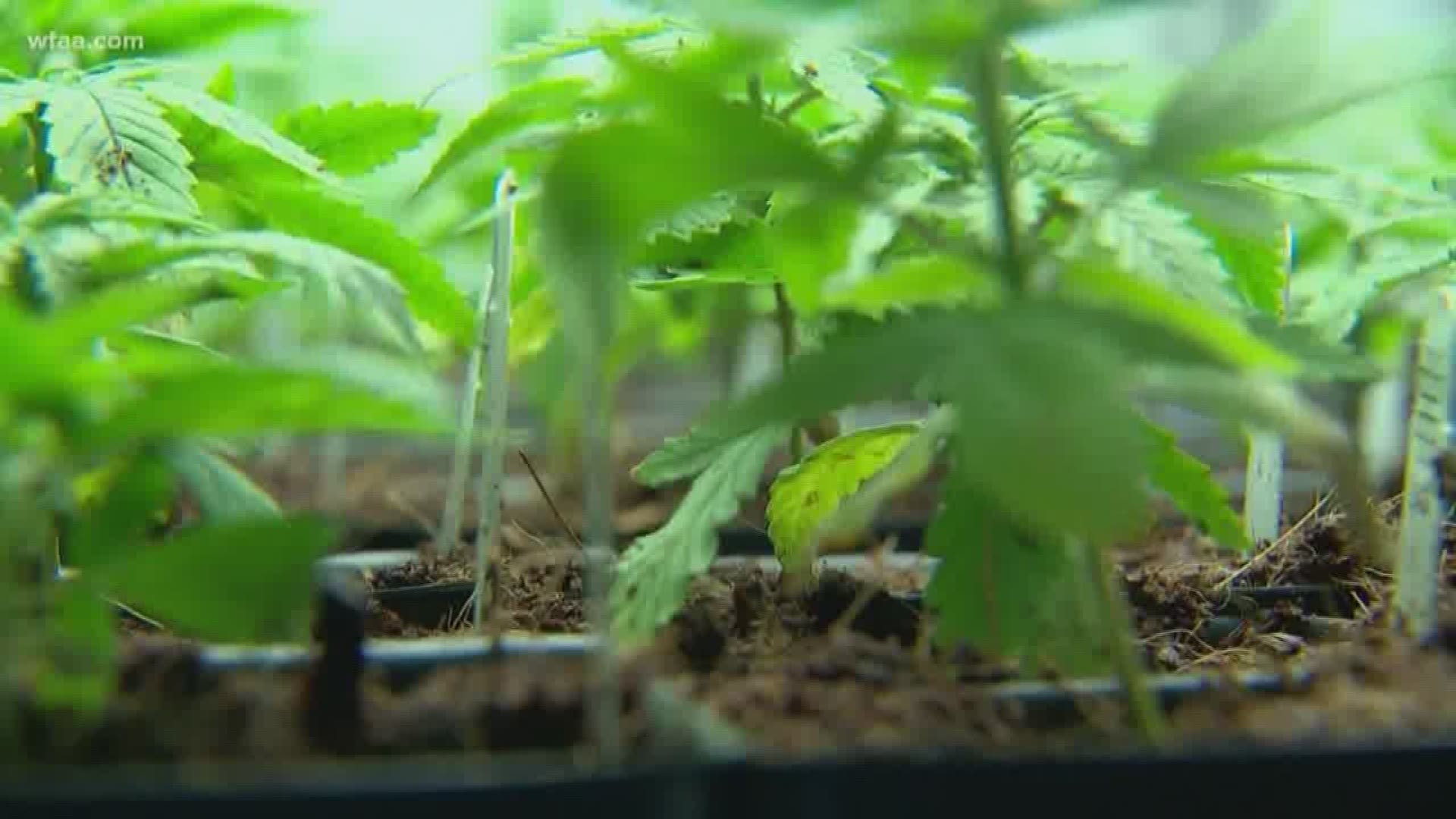GRAND PRAIRIE, Texas — As more than 50 bills are under consideration in the Texas Legislature this session to change the state's approach to policing marijuana production and use, the Texas Police Chiefs Association is urging lawmakers to proceed with caution and to recognize what they believe is a harmful drug, legalized or not.
In a report prepared by the Texas Police Chiefs Association called "The Impact of Marijuana Legalization on State and Local Governments and Communities, TPCA proposes to "address the myths vs. the facts" on marijuana production, cannabis use, legalization and long-term effects on a community's quality of life.
Citing research by the National Highway Traffic Safety Administration, Oregon State Police-Drug Enforcement, the Centers for Disease Control and other independent surveys, the TPCA fact sheet details property crime increases in Oregon, a crime rate rising in Colorado 11 times faster than the rest of the nation, increases in youth usage of marijuana, and increased health care costs in states that have legalized marijuana.
"The modern day marijuana is a very potent drug that has now become addictive and damaging," said Grand Prairie Police Chief Steve Dye, who is on the committee coordinating marijuana legislation for the Texas Police Chief's Association. "Let's do objective research on the legalized states and that's where we've come up with our opinion."
Their research of states like Colorado, Washington, and California leaves the TPCA with the firm belief that legalizing marijuana in Texas will not stop the crime they are dealing with now: where marijuana busts also often lead to seizure of illegal weapons and other dangerous drugs.
"What happens when you legalize marijuana is the criminal element is alive and well. It actually becomes more violent because they're fighting for that market share," Dye said. "If people are naive enough to think the criminality goes away with legalization, again, looking at the legalized states, it's just not true."
"Here's the way we feel as Texas Police Chiefs. Just because it's been passed and other states have legalized it, it doesn't mean that it's right for our state."
Attorney David Sloane, with DFW NORML, said upward of 95 percent of his clients are dealing with marijuana possession and/or distribution charges.
"You've got lies, you've got damn lies and you've got statistics," Sloane said of the police chiefs' findings on marijuana legalization. "And these studies don't bear out."
Sloane cites his own statistics, for example a report compiled by the Colorado Department of Public Safety late last year that shows the youth usage of marijuana is not increasing in that state. According to the report, the youth marijuana rate reported by the National Survey on Drug Use and Health was the lowest it's been since 2007/2008. Another report, the Healthy Kids Colorado Survey, says the proportion of students trying marijuana before the age of 13 went down between 2015 and 2017.
The same Colorado Department of Public Safety report does however say that hospitalization with possible marijuana exposures did "increase steadily from 2000 through 2015."
"I've been to states that have legalized, I've been involved in full legalization, and I just haven't seen the harm that they're talking about. It just isn't there," Sloane said. "And the fact of the matter is the majority of Texans think that these marijuana laws are much ado about nothing. "
Sloane supports HB 63 currently under consideration in Austin. It proposes making marijuana possession a simple civil penalty, eliminating the threat of arrest, jail time, and criminal record for 1 oz. of marijuana or less.
"First and foremost this bill doesn't legalize anything. All it does is give the officers a more rational approach on how to deal with these small insignificant marijuana arrests," Sloane said.
But the Texas Police Chiefs see the growing amount of proposed marijuana legislation in Texas as the same slow and steady path that led to legalization in other states. That's what they're fighting against.
"We haven't been criminalizing small amounts of marijuana for years," said Dye. "The current exceptions in Texas, we're not arguing those. If there's valid research that shows that marijuana is the only or best medical treatment for a specific illness, there's not a police chief in the state of Texas that has a problem with that. But again the blueprint for the legalization community is get your foot in the door with that very narrow scope for medical use, desensitize the public and come back with legalization."
"I hope Texas gets there eventually," Sloane said. "Personally. I think that we're a long, long, long way from full legalization,"
HB 63 is the first of 51 marijuana-related bills to be heard in a committee this legislative session.

